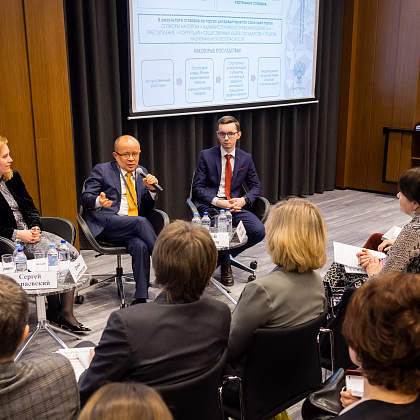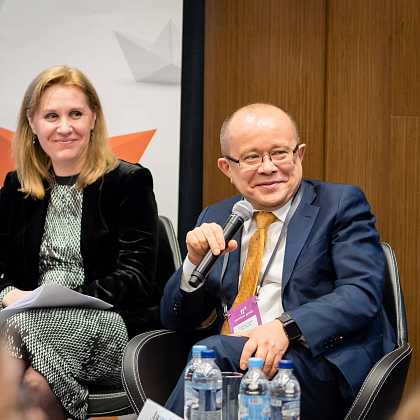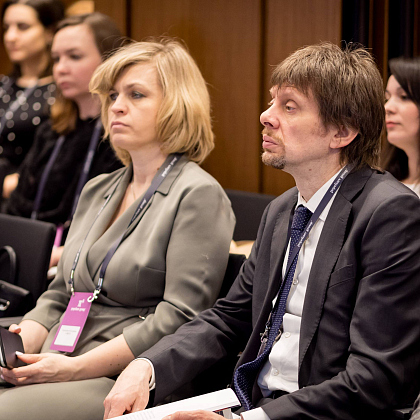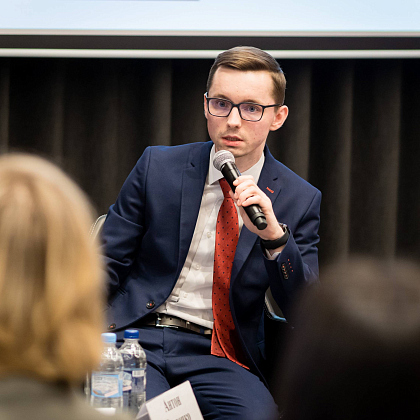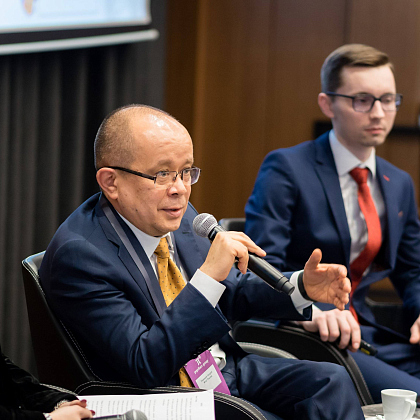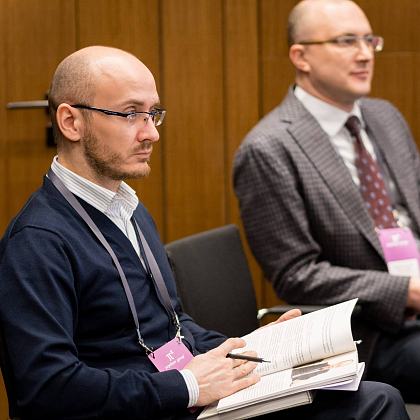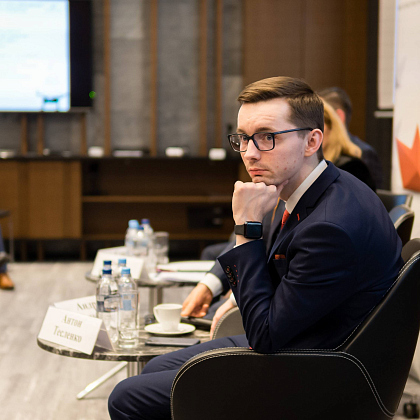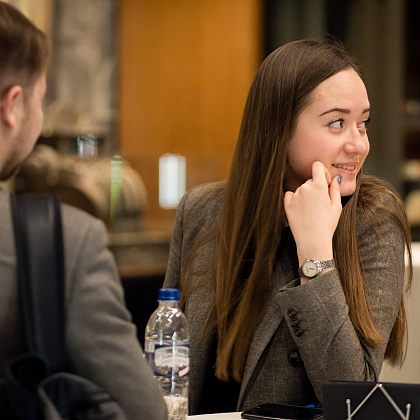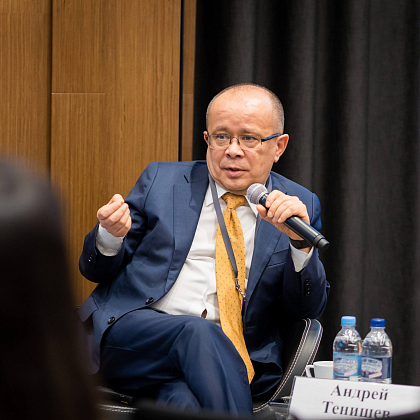The Antimonopoly Club focuses on the anti-cartel package
On 27 February 2020 another session of the Antimonopoly Club organised by the Competition and Law journal took place. The participants of the meeting discussed the most topical issues on the antimonopoly agenda: the anti-cartel package of draft laws of the Russian Federal Antimonopoly Service (FAS Russia) and the practice of cooperation between the antimonopoly authorities and law enforcement bodies in investigating criminal cases relating to cartels.
The moderator of the meeting, partner at Pepeliaev Group and the journal’s chief expert Elena Sokolovskaya spoke about the key developments proposed in the package of amendments. She named the most controversial initiatives: empowering FAS Russia to seize documents and items, to obtain materials from investigative activities and to access personal data and information about subscribers of communications services.
“There are so many fantastic fears and myths surrounding the anti-cartel package,” said Andrey Tenishev, the Head of FAS Russia’s Administration for Combating Cartels commenting on the extension of the antimonopoly authority’s powers. “The proposed initiatives should be considered in the general context together with other provisions of current legislation”.
The speaker gave an example: discussing FAS Russia’s right to carry out seizure, one should remember article 27.10 of the Russian Code of Administrative Offences listing all of the controlling bodies entitled to seize items and documents which serve as evidence in administrative cases. “We are not inventing new law; we are proposing that the law already in place be used prudently and reasonably”, he emphasised speaking about the first myth.
Besides, Mr Tenishev added, the developed amendments contain the utmost details regarding the procedural guarantees for persons subject to the seizure in terms of the mechanisms of returning the seized property and challenging the actions of the antimonopoly authority.
The second myth, according to Mr Tenishev, is that FAS Russia allegedly wants to obtain powers to conduct investigative activities. “This is not the case, we are not seeking to become authorised to conduct investigative activities," he clarified. "We are proposing that the antimonopoly service be included together with the Russian Federal Tax Service in the list of persons receiving information from authorities that carry out such activities. "Moreover, this concerns only cases with the signs of a criminal cartel, while the amendments concern only the right, but not the obligation, of the law enforcement authorities to transfer to us the results of the investigative activities after such materials have been disclosed”.
The third myth specified by the Head of the Administration for Combating Cartels is that the antimonopoly authority’s right to obtain data about subscribers of communications services as provided for by the amendments infringes the secrecy of correspondence and telephone negotiations safeguarded by the Russian Constitution. “The electronic form of the procurement system and the mobile Internet are actively developing. Bad-faith bidders may file applications via mobile devices. Moreover, by using such devices auction robots and computer programs controlled by companies implement collusions. Without the right to obtain data about legal entities subscribing to communications services we will not know who has accessed the electronic trading platforms where public auctions are held and we may lose antimonopoly control over the allocation of as much as RUB 30 trillion. That is the annual procurement volume. And this is nearly a quarter of the county’s GDP”, he warned.
The moderator of the meeting emphasised one more concern of business: the amendments provide for a new aggravated body of the offence in article 178 of the Russian Criminal Code with increased criminal liability of companies’ senior management. “What is the purpose of introducing this body of evidence? Is such an approach reasonable when criminal liability depends on the position a person occupies in a company’s management bodies?” she asked Mr Tenishev.
According to Mr Tenishev, cartels organised by shareholders and managers of a business are definitely more dangerous for society. This is not just economic behaviour, but a corporate policy of the entire company, he clarified, adding: “We are not introducing a new type of liability into the Russian Criminal Code, but are differentiating the existing liability of companies’ managers and senior personnel. Such structure - special liability for special subjects - is not new for criminal legislation”.
It should be understood, emphasised the Head of the Administration for Combating Cartels, that business managers and owners may be held criminally liable only when there is direct intent of the person at fault, but not for the above persons occupying such position. When asked whether the person responsible for antimonopoly compliance in a company may be subject to a criminal punishment if a cartel is identified, Mr Tenishev answered: “A person may not be subject to criminal liability only because he/she is a compliance officer. The same criteria apply here: being at fault for the crime and direct intent”.
Moreover, the members of the Antimonopoly Club discussed the main goals and objectives of the Interdepartmental Programme to Identify and Prevent Cartels and Other Agreements Limiting Competition for 2019 - 2023 (the “Interdepartmental Programme”) and the methodological recommendations on how to arrange for FAS Russia and law enforcement authorities to work together to solve and investigate crimes under article 178 of the Russian Criminal Code which were developed to ensure implementation of the programme.
Anton Teslenko, Deputy Head of FAS Russia’s Administration for Combating Cartels, pointed out the main objectives of the Interdepartmental Programme:
- organising cooperation with law enforcement authorities when identifying and proving cartels;
- improving the efficiency of the enforcement proceedings in cases concerning the recovery of fines for antimonopoly offences;
- reducing the number of antimonopoly cases in which the income of cartel participants is less than RUB 50 million;
- preventing antimonopoly offences.
As part of this programme FAS Russia has developed Methodological Recommendations for law enforcement authorities to uncover and investigate cartels. These documents should not be treated as a mandatory instruction for investigators, the speaker assured. According to him, the recommendations that have been developed are a summary of many years of practice in the area of investigating cases relating to cartels and of the experience of the antimonopoly and law enforcement authorities working together to solve such cases.
“The purpose of the document is to help such crimes to be classified correctly and to solve the issues arising when cartels are being investigated. For example, the issue of determining and differentiating the procedural status of the antimonopoly authority’s officer involved as a party in the case which, depending on the situation, may act as a witness in the case, or as a specialist with special knowledge,” Mr Teslenko emphasised.
The participants of the meeting also discussed whether it is reasonable to set out a provision that a preliminary opinion of the antimonopoly authority needs to be obtained before a criminal case is initiated. According to Andrey Tenishev, the Russian Federal Tax Service has already come up with such initiatives when investigating tax crimes, but was never supported. “We may not limit an investigator's procedural independence with respect to initiating a criminal case,” he pointed out. “However, the idea that a criminal case concerning a cartel should be referred to the court only after the opinion of FAS Russia has been obtained seems reasonable. But this requires amendments to the Russian Criminal Procedure Code”.
